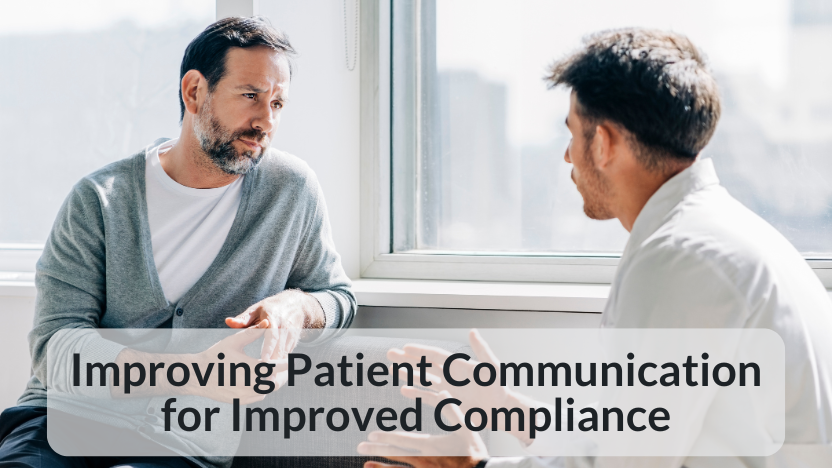Want to Change Patient Outcomes? Change How You Communicate.
Posted by EyePromise on May 23rd 2024
For many healthcare professionals across disciplines, patient adherence and compliance continue to be a struggle. In an article for Optometric Management, Steve Vargo, OD, MBA, shared how he draws inspiration from famous quotes to communicate with and motivate his patients. Here are 4 tactics to try out in your daily patient communications.
Listen More. Talk Less.
As the expert in the room, it can be easy to start making recommendations even before the patient finishes sharing their history or concerns. In fact, research indicates that doctors tend to interrupt patients and start prescribing testing or solutions, even after just a few routine questions. However, Dr. Vargo stressed the importance of listening to understand, gathering all the information before making a recommendation. The solution becomes clear when the issues are fully understood, so practice listening more and talking less in the exam room.
Focus On the Story, Not the Numbers.

It’s no secret that doctors love data, including eye care professionals (ECPs). ECPs are always on the lookout for the latest clinical research or wanting to review the most recent test results, and there’s nothing wrong with that! Data and numbers are great for understanding and tracking their eye and overall health.
However, patients aren’t steeped in eyecare knowledge like ECPs, so throwing out all these statistics and numbers and such can easily overwhelm even the most educated patients. Even if they do understand it, research shows that we tend to forget 90% of new information within 72 hours if it’s not reinforced. So how can you get patients to not only understand what you’re saying, but retain it? That’s where the story comes in.
For most people, stories tend to “stick” easier than hard numbers, so wrapping your information in a story can help patients better understand what you’re saying. For example, if you’re referencing a study where 97.8% of patients improved or stabilized their age-related eye health issues after taking this supplement that you’re prescribing, you can say something like, “My patients who take this supplement tell me they have more confidence when driving at night, and it's helped prolong their healthy vision so they can keep their independence.”
Educate, Don’t Complicate.
As mentioned, ECPs are well-versed in eyecare, which means they know all the industry jargon like a second language. But again, patients (and even other health professionals) don’t understand this “language” and can find it paralyzing. Even if they do catch on to some of the verbiage throughout your explanation, the odds of them retaining your recommendation amongst that fancy jargon is slim to none.
That’s why Dr. Vargo recommends distilling this knowledge into a simplified explanation that’s easy to understand and actionable. Substituting industry jargon for more common words is step number one. If there are no synonyms for the term, analogies can help make these complex phrases more accessible.
Create Urgency, Not Fear.

Another thing stressed in this article is the need for patients to understand what they’ll lose if they don’t adhere to recommendations. While he doesn’t condone scare tactics, Dr. Vargo admitted that patients are much more likely to act if they understand the “threat” that accompanies not following instructions. Asking questions can help paint this picture and motivate patients without instilling fear. Dr. Vargo explained,
“For example, instead of lecturing a noncompliant [patient with blood sugar control issues] on a lifestyle change, ask her to share her level of concern over vision loss. It’s a noninvasive way to elevate concern and motivate change.”
People are two to three times more motivated by avoiding “loss,” so telling the story from the “other” vantage point, the one without a happy ending, can be the key to incentivizing patients. Using the same example as above, you can try, “Are you concerned about losing your independence? My patients who take this supplement tell me they have more confidence when driving at night, and it's helped prolong their healthy vision.”
For many ECPs, patient education is a pillar in their practice, but education can only take patients so far. Effective communication tactics like the ones above can help cover the gaps. Try incorporating some of these tools into your talk tracks and see if it helps improve patient compliance.
If you’re looking for a turnkey nutritional solution with the industry leading patient compliance program, learn more about the Zea Performance System™.


